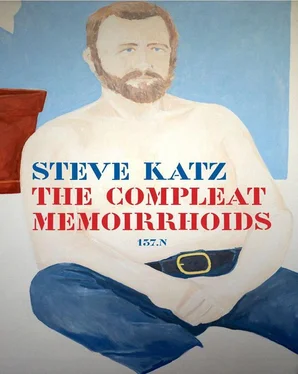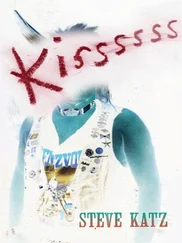I get the email from the chair of the English Department that they, with the Department of Jewish Studies, have scored for the University of Colorado a collection of 11,000 volumes of fiction by Jewish authors of the twentieth century. There’s a substantial list of my books in that collection. I panic. What’s worse is that they ask me to read from the work at the celebration for this acquisition. Holy moley, thinks I, maybe I ought to turn around, skirt the block the other way. The Fanwoods are coming. That’s the Irish gang from across Broadway in Washington Heights. Most of them went to Incarnation, a Catholic school. We heard they still taught there that the Jews killed Christ. If you get caught alone by a patrolling band of Fanwoods they feel free to kick the crap out of you. It happened to me several times. I wrote about this in my novel, Florry Of Washington Heights . It comes down like this: I’m carrying home a couple of bags of groceries. A squad of these Fanwoods trots around the corner and they see me. There’s six or seven of them. They surround me. The littlest kid steps up into my face.
“You a Jew?”
In a situation like this, pride is not the issue. Survival first. “No.”
“What are you?”
“Unitarian. I’m a Unitarian.”
“Okay,” one of the older kids pipes up. “Then recite the catechism.”
“There is no…” Before I can get the sentence out they start to wail on me. News of the Holocaust has filtered into the neighborhood. Violence always licenses violence. They smack the grocery bags out of my arms. Cans and oranges scatter across the courtyard. I take a shot to the face and kicks at my legs. A heavy kid in combat boots stomps on my foot but I don’t go down. I do start to cry. I want to fight back, but don’t know how against so many.
“Stop,” one of them says. “He’s crying.” A compassionate Irish kid. The Fanwoods evaporate like mist down 173rd Street. I don’t think they were totally anti-Semitic. Some of my best friends are Irish. It’s an aspect of Irish sensuality. They enjoy to beat people up, and Jews is a great excuse.
So my gut response to the request for my performance is to duck into a doorway, because here come the Fanwoods. Secondly, I think, I’m not a Jewish-American author. I’m an American author who happens to be Jewish; but as many have said, you don’t get to decide how Jewish you are for yourself. It’s up to Hitler. I’m certainly not like the divine Bernard Malamud, nor the shtetlicious Isaac Singer, nor Philip Roth who profits from flattering Jewish male academics and intellectuals by excavating their lusts and angst. Best for me to hide from the Fanwoods. The e-mail informs me there will be no remuneration. That’s usually the score for artists. If I’m a failed football coach I’ll get a million dollar contract, or if I’m a big financial CFO who had screwed the economy, I’ll get a huge bonus. I tell them my fee is $1000, and that queers the deal. They thank me, but can’t afford me. You betcha!
My family in Washington Heights is hardly religious or observant, though occasionally some Yiddish words fly around the apartment. We aren’t members of a synagogue. When I am barely beyond toddler, I think it is around Purim, or maybe Thanksgiving, we get a call that uncle Izzy, my mother’s half brother, a grizzled old veteran of the garment district, is about to visit because he has no place to go for the holiday. He is called the shrayer, famous for screaming in grief at funerals, as he threatens to leap from a window. My mother panics. He is Orthodox. He lives kosher. She is baking a ham. We huddle, and decide we have to describe the meat as corned beef. The apartment air is a perfume of sugar cured pig. As he comes through the door uncle Izzy remarks at how delicious everything smells. He eats seconds and thirds and as he leaves he kisses everyone and thanks us for the best corned beef he has ever tasted.
At nine years old I decide to check out Judaism, and sign myself up against my mother’s wishes for Hebrew school at an Orthodox synagogue in the neighborhood, and I spend half a year at kiddy bible studies, and learning the Hebrew alphabet. Kids are required to wear tsitsis, an undergarment with a tasseled fringe that often hangs out over the belt. This makes it too easy for the Fanwoods to certify you as Jew, so that and the total boredom of Sunday school ends my synagogue interlude. My mother can’t afford the Bar Mitzvah, which is just as well with me, but she manages to get me a free ride to confirmation at Temple Emanuel on Fifth Avenue. I resent in my pre-adolescent wildness being the poor kid in the Sunday school bunch, and often I continue on the number four bus down to Forty-Second Street where I go to a piss perfumed movie, or hang out at Bickford’s or Hubert’s Flea Circus, where fleas climb ladders, or at Grants where all shapes and colors of people eat nineteen cent hamburgers, where the religion is sleaze and I feel comfortable.
Cousin Herbie is the genius of the family, said to have graduated Harvard at seventeen. He eventually becomes Head of the Department of Internal Medicine at Belleview. Dr. Herbert Gershberg. During the Second World War he serves in the Medical Corps, and is one of the first into Buchenwald, along with Margaret Bourke-White. He returns with a folder full of her photographs, which he brings to a family gathering. I am deemed too young to look at them. When I finally get a chance to see these published I realize that anyone still alive is too young to look at them. When I self-publish The Lestriad in southern Italy, I sent copies to several people in the family, Herbie among them. After we get back from three years in Italy we pay Herbie a visit. I think his Swiss wife, Helga, is exotic and cool. Herbie tells me I don’t have the stuff. I’ll never come near interesting him as much as his favorite writer, Bennet Cerf. He tells me I should go back to school and learn a trade.
At the end of my senior year at Cornell I marry Pat Bell, rodeo queen of Winnemucca, Nevada, a sculptor. Her dad is Catholic, her mother Quaker, Christian Scientist, and etc. Though the attending physician at her birth, Dr. Weiss, was a Jew, the Jewish person in Winnemucca at the time, Pat (affectionately called Jingle) doesn’t know anything about Jews and lives with her roommate at Cornell for six months before she discovers the woman is Jewish. From studying intensely photographs of Michelangelo’s Moses she believes Jews have horns. She notices that I don’t. Jingle has primed herself to have kids from the time she was four and immediately drops three sons into the world as if out of her armpits. She is conscientious about giving them a taste of their Jewish heritage, and learns to make excellent gefülte fish, borscht, matzoballs, etc., all of which she presents in her unique encyclopedia of cooking and gardening, The Craft Of The Country Cook . She insists we do Passover, have a Seder, for which she makes the fish, the charoses, and etc. Once in Eugene, Oregon, we invite our friend, David Stannard to our mild Seder. He is a Quaker, a great potter, student of Bernard Leach. When it comes to celebrating the plagues rained down on the Egyptians, a moment in the Seder which the kids love, David is so astonished and offended that he flees the room.
The first time I walk into a classroom as a professor at The University of Notre Dame and look into the faces around the table I think, “Holy Shit, the enemy. The fighting Irish. Fanwoods!” Each classroom has a crucifix above the door, a circumsized guy hanging from it. To introduce myself I explain that the only person who might understand how I grew up is hanging there, and I point at the cross above the door. The kids look confused. They don’t get it, and I don’t push it. I have a good time at Notre Dame. Father Hesburgh makes it feel small c catholic. When my two years are up I get a letter from the English Department refusing me tenure. The communication starts more or less, “Even if you weren’t a Jewish novelist we would not….” I don’t even know I am being considered for tenure. The word isn’t in my vocabulary yet. I want to get away from teaching as soon as anything else shows up that can support me and my kids. I burn the letter, unfortunately. Lawyer friends tell me that could have been litigable. I am naive. In South Bend I make my own tofu. I never think about litigation. I think only about explaining to them that I am not a Jewish novelist, but an American writer who happens to be Jewish.
Читать дальше












